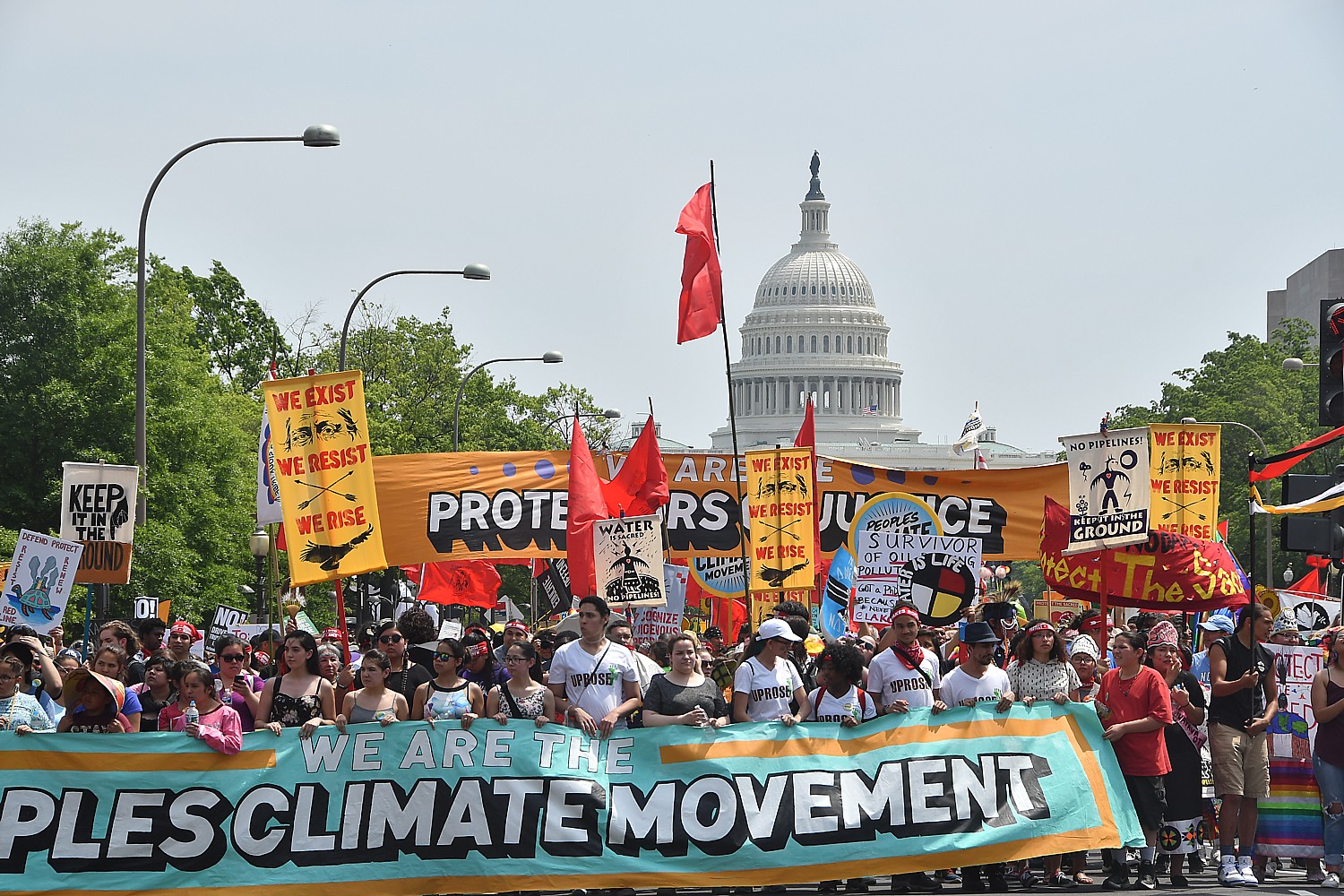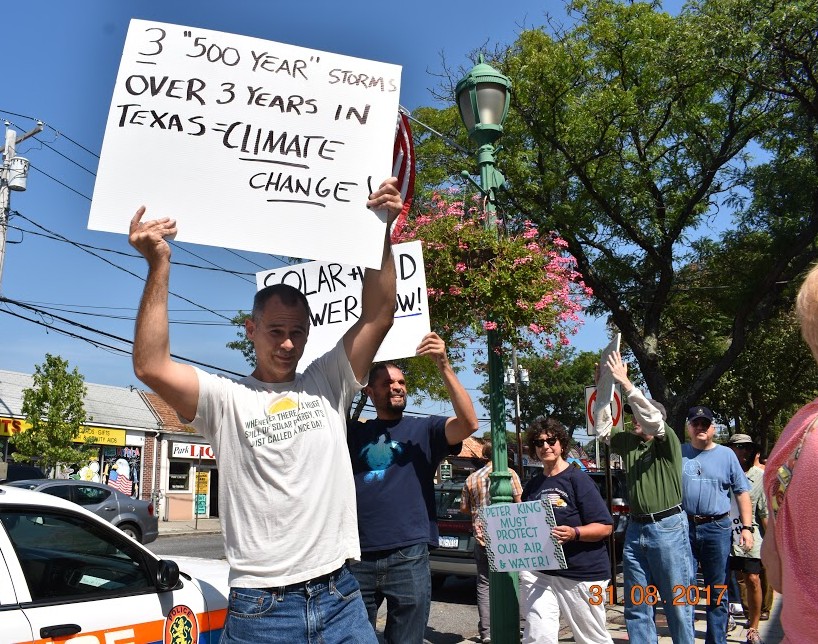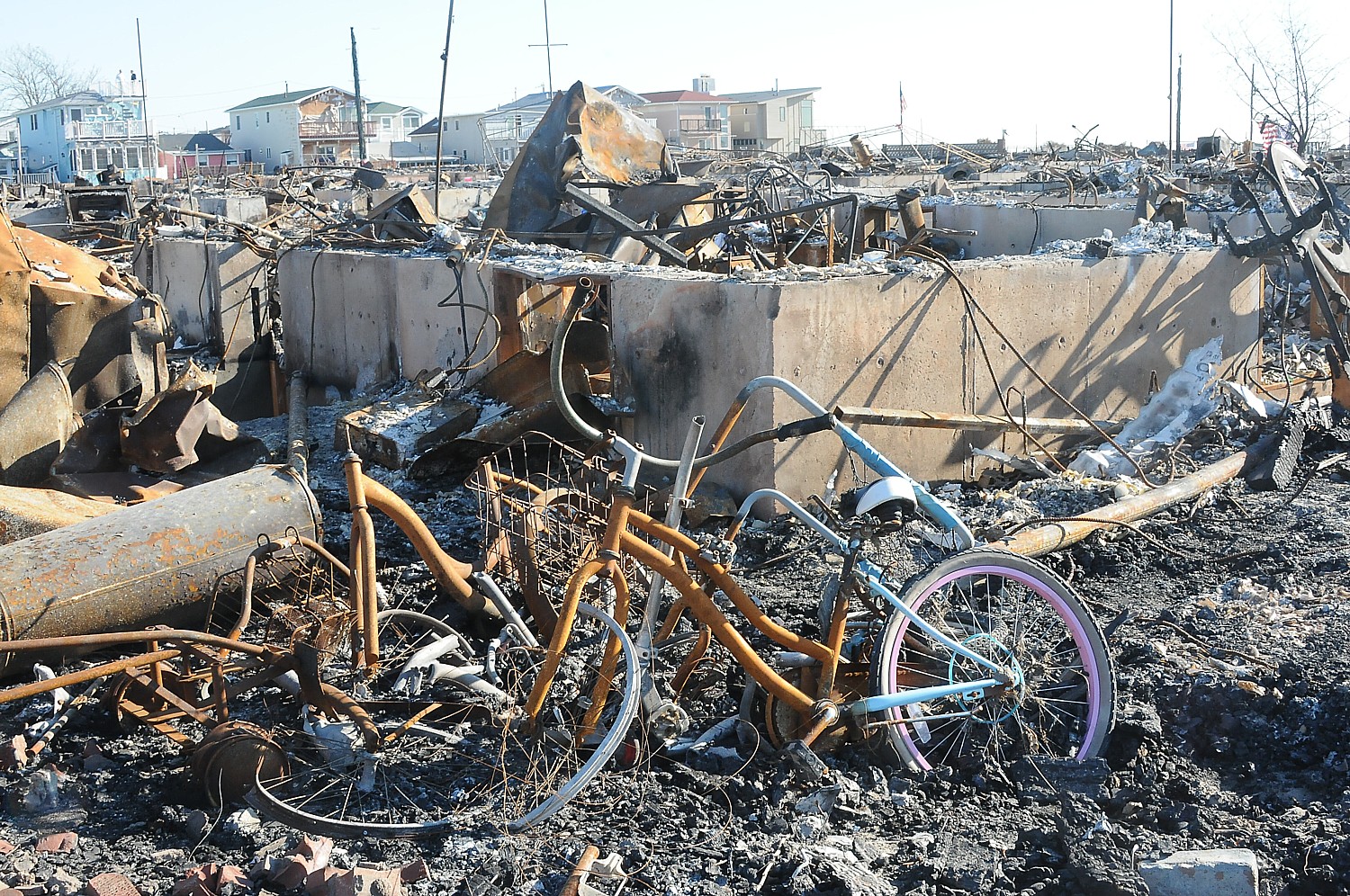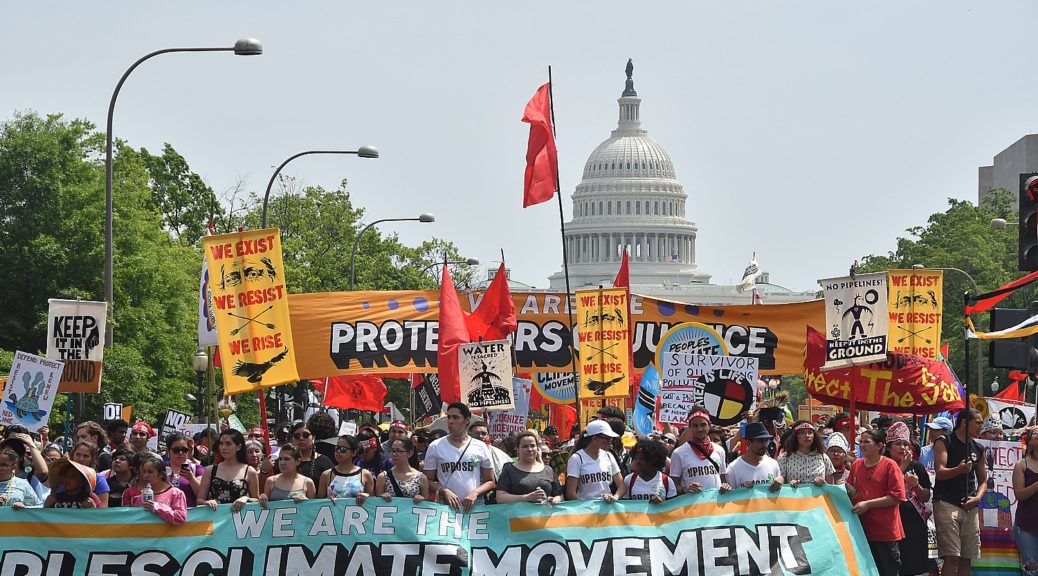
By Karen Rubin, News & Photo Features
With Harvey reaping its terror and Hurricane Irma warming up for its debut, Texas’ climate catastrophe is the latest example of how tragically foolish it is to invest billions to combat ISIS (hardly an existential threat), $70 billion to build a wall along the Mexico border, $1 trillion to rebuild the nuclear weapons arsenal, yet deny the reality of climate change with the attendant costs in the multi-billions of every single one of these climate catastrophes – the cost to the Treasury and taxpayers to rebuild infrastructure, to pay for public health consequences, to lose the productivity of the workforce.
“This is the costliest and worst natural disaster in American history,” Dr. Joel N. Myers, founder, president and chairman of AccuWeather, stated. “AccuWeather has raised its estimate of the impact to the nation’s gross national produce, or GDP, to $190 billion or a full one percent, which exceeds totals of economic impact of Katrina and Sandy combined. The GDP is $19 trillion currently. Business leaders and the Federal Reserve, major banks, insurance companies, etc. should begin to factor in the negative impact this catastrophe will have on business, corporate earnings and employment. The disaster is just beginning in certain areas. Parts of Houston, the United States’ fourth largest city will be uninhabitable for weeks and possibly months due to water damage, mold, disease-ridden water and all that will follow this 1,000-year flood.”
Meanwhile, around the globe there are even greater flooding disasters –1,200 have died so far and 900,000 homes destroyed in floods in India, Nepal and Bangladesh, taking with it farms and crops that will lead to the next climate catastrophe, famine.
Now Congress will soon take up a budget that proposes to slash the EPA into nothing (Scott Pruitt has already scrubbed any research and mention of climate change from the website and is doing his level best to stop any data collection), cuts to FEMA that was already $25 billion in debt before Harvey, cuts to Health & Human Services and every other social safety net. But Trump threatens to shut down government if he doesn’t get nearly $2 billion (a downpayment on $70 billion) for his border wall with Mexico.

Which has posed more of a national security threat to Americans? Climate disasters or ISIS? The wrong-headed approach to national security came to a head with a rally that drew about 60 people on short notice on Thursday, August 31 at the Massapequa, Long Island office of Congressman Peter King, who makes a great show of concern for protecting national security but drops the ball on the national security implications of climate change. (See story)
You only have to compare the horrid waste of blood and treasure because of a disdain for addressing the realities of climate change to the results of the efforts of the Regional Greenhouse Gas Initiative (RGGI) consisting of New York State along with eight other Northeastern and Mid-Atlantic states (not New Jersey because Governor Chris Christie thought it would better position him to become the GOP presidential candidate if he withdrew from RGGI and denied the reality of climate change). Founded in 2005, the RGGI, the nation’s first program to use an innovative market-based mechanism to cap and cost-effectively reduce the carbon dioxide emissions that cause climate change, is updating its goal to lower carbon pollution by reducing the cap on power plant emissions an additional 30% below 2020 levels by 2030. With this change, the regional cap in 2030 will be 65% below the 2009 starting level.
RGGI has already contributed to a 50% percent reduction in carbon dioxide emissions from affected power plants in New York, and a 90% reduction in coal-fired power generation in the state. To date, New York has generated more than $1 billion in RGGI proceeds, which are applied to fund energy efficiency, clean energy and emission reduction programs.
RGGI continues to exceed expectations and has provided more than $2 billion in regional economic benefits and $5.7 billion in public health benefits while reducing emissions in excess of the declining cap’s requirements. Analysis by Abt Associates – found participating member states had 16,000 avoided respiratory illnesses, as many as 390 avoided heart attacks, and 300 to 830 avoided deaths by reducing pollution. The health benefits in New York alone are estimated to have exceeded $1.7 billion in avoided costs and other economic benefits.
And contrary to the lie that clean, renewable energy and sustainable development will hurt the economy and increase consumer costs, the economies of RGGI states are outpacing the rest of the country and regional electricity prices have fallen even as prices in other states have increased. So even as the RGGI states reduced their carbon emissions by 16% more than other states, they are experiencing 3.6% more in economic growth. Each of the three-year control periods contributed approximately 4,500 job years to New York’s economy and 14,000 to 16,000 job years region-wide.
Meanwhile, New York consumers who have participated in RGGI-supported projects through December 2016 will realize $3.7 billion in cumulative energy bill savings over the lifetime of the projects, according to New York State Energy Research and Development Authority (NYSERDA).
New York is actively promoting clean energy innovation through its Reforming the Energy Vision strategy and initiatives. Additionally, programs including the Clean Energy Fund, $1 billion NY-Sun Initiative, $1 billion NY Green Bank, $40 million NY-Prize competition for community microgrids, and others, ensure that progress toward reducing emissions will be accelerated.
New York has devised a host of programs to incentivize local projects aimed at developing clean, renewable energy and sustainability. Most recently, NYSERDA has developed a Solar PILOT Toolkit to assist municipalities in negotiating payment-in-lieu-of taxes (PILOT) agreements for solar projects larger than 1 MW, including community solar projects.
How ironic is the climate catastrophe in Texas, the leading proponent of fossil fuels and opponent of programs incentivizing the transition to clean, renewable energy (and the localized independence that wind, solar and geothermal bring), that Harvey has damaged its oil refining infrastructure, which is already resulting in higher gas prices, not to mention taxpayer money that will be channeled to rebuild the devastation. None of those private, profit-making companies which have gouged and inflicted public health horrors should get funding from taxpayers.
Now Texas will be coming to Congress for billions in aid.
Congress should pass a law: no federal help for states that deny climate change (Florida and North Carolina actually have legislation banning the use of the term) and therefore do nothing to mitigate the consequences, and which deny altogether the concept of a federal, “one nation” government to collect taxes and provide services on behalf of all. Texas, which has cheered the notion of secession, continually supports policies intended to shrink the federal government to a size it can be flushed down a toilet, including dismantling the Environmental Protection Administration and ending environmental regulations. So let them see what that actually means. Let’s also be reminded the Texas’ Republican delegation obstructed federal aid to New York and New Jersey after Superstorm Sandy.

Too harsh? The climate deniers are dooming the entire nation and the planet to such tragic, devastating and costly climate catastrophes. Hundreds of thousands of Texans will emerge from Harvey with their homes, retirement, college funds decimated, very possibly their jobs flushed away along with the floodwaters. Tens of thousands will become climate refugees – just a small fraction of the estimated 200 million worldwide who will be forced to flee flooded coasts as sea levels continue to rise, and storms continue to ravage.
But, since Trump is so keen to dish out taxpayer billions to those he considers his base (one wonders what would happen if and when California is hit with an earthquake), Congress should impose conditions on the billions that will be sent to Texas to rebuild its infrastructure and housing: Texas should do what every other community has done that underwent such devastation: rebuild and transition to clean, renewable energy sources and sustainable, climate-friendly, low-carbon emitting structures.
Congress, which Trump just dared to defy on his tax “reform” (that is, giveaway to the wealthiest 1% and corporations while starving federal government of funding), should make sure that EPA has the people and resources it needs, that climate action is a priority, that the Interior Department does not give away Americans’ legacy (and property) for environment-destroying development, that FEMA and Housing & Human Services (now in the command of a man who dismisses poverty and bad things that happen to some dereliction of personal responsibility) are properly funded and staffed.
________
© 2017 News & Photo Features Syndicate, a division of Workstyles, Inc. All rights reserved. For editorial feature and photo information, go to www.news-photos-features.com, email editor@news-photos-features.com. Blogging at www.dailykos.com/blogs/NewsPhotosFeatures. ‘Like’ us on facebook.com/NewsPhotoFeatures, Tweet @KarenBRubin

